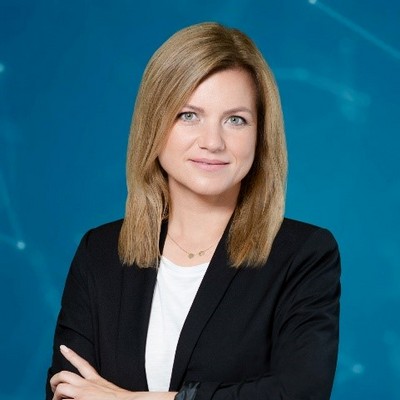 Ewelina Król has graduated from University of Gdansk, Poland. In 2004 she obtained MSc degree in biotechnology, and in 2011 PhD degree with honors in biological sciences, discipline: biochemistry. The main aim of her PhD project was to investigate the antiviral activity of new synthesized tunicamycin analogues and mimetics (potential N-glycosylation inhibitors) against dangerous viral pathogens such as hepatitis C virus and classical swine fever virus. In 2012, she was granted award by Gdansk Scientific Society and the Mayor of Gdansk for her doctoral thesis. In 2012 she was also awarded a Polish Ministry of Science and Higher Education “TOP500 Innovators Science-Management-Commercialization” fellowship and spent three months at Stanford University, California. From 2012 she is an Assistant Professor at the Department of Recombinant Vaccines, Intercollegiate Faculty of Biotechnology University of Gdansk and Medical University of Gdansk, Poland. During her scientific work she was a leader of few research projects funded by Polish Ministry of Science and Higher Education, Polish National Science Centre and the National Centre for Research and Development focused mainly on development of innovative methods for prevention and treatment of dangerous viral infections including hepatitis C virus, Zika virus, tick-borne encephalitis virus and influenza virus by construction of new generation vaccines and synthetic therapeutics. She also participated in many research projects aimed at construction and implementation of vector vaccines against different viral pathogens. Ewelina Król is the main author and co-author of several publications published in peer-reviewed journals including high impact journals such as Trends in Biotechnology and two patent applications. She received many awards, including individual and team awards of the Rector of the University of Gdansk, an annual scholarship for young scientists from the University of Gdansk, “L’Oréal-UNESCO For Women in Science” award in the category of habilitation theses in 2019. She was also placed on the list of "50 bold women 2019", ranking Wysokie Obcasy in Gazeta Wyborcza. She is a member of TOP500 Innovators Association, member of Gdansk Scientific Society and Young Scientists Club, in which she is the vice-president.
Ewelina Król has graduated from University of Gdansk, Poland. In 2004 she obtained MSc degree in biotechnology, and in 2011 PhD degree with honors in biological sciences, discipline: biochemistry. The main aim of her PhD project was to investigate the antiviral activity of new synthesized tunicamycin analogues and mimetics (potential N-glycosylation inhibitors) against dangerous viral pathogens such as hepatitis C virus and classical swine fever virus. In 2012, she was granted award by Gdansk Scientific Society and the Mayor of Gdansk for her doctoral thesis. In 2012 she was also awarded a Polish Ministry of Science and Higher Education “TOP500 Innovators Science-Management-Commercialization” fellowship and spent three months at Stanford University, California. From 2012 she is an Assistant Professor at the Department of Recombinant Vaccines, Intercollegiate Faculty of Biotechnology University of Gdansk and Medical University of Gdansk, Poland. During her scientific work she was a leader of few research projects funded by Polish Ministry of Science and Higher Education, Polish National Science Centre and the National Centre for Research and Development focused mainly on development of innovative methods for prevention and treatment of dangerous viral infections including hepatitis C virus, Zika virus, tick-borne encephalitis virus and influenza virus by construction of new generation vaccines and synthetic therapeutics. She also participated in many research projects aimed at construction and implementation of vector vaccines against different viral pathogens. Ewelina Król is the main author and co-author of several publications published in peer-reviewed journals including high impact journals such as Trends in Biotechnology and two patent applications. She received many awards, including individual and team awards of the Rector of the University of Gdansk, an annual scholarship for young scientists from the University of Gdansk, “L’Oréal-UNESCO For Women in Science” award in the category of habilitation theses in 2019. She was also placed on the list of "50 bold women 2019", ranking Wysokie Obcasy in Gazeta Wyborcza. She is a member of TOP500 Innovators Association, member of Gdansk Scientific Society and Young Scientists Club, in which she is the vice-president.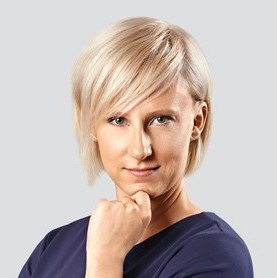 Anna Michalska-Ciechanowska is the food technologist with over 12 years of professional experience in conducting interdisciplinary research projects in area of agricultural science. It concerns mainly the development of new food products or their contents, in the context of preservation of biologically active components, including polyphenolics and antioxidants. She is also working on the optimization of processing technologies (mainly fruits) in order to minimize the loss of valuable bioactive constituents that occurs during the food processing. Currently, her scientific interest is related to the production and the quality evaluation of fruit powders that could be successfully use in food, cosmetic and pharmaceutical industries with a new aspect connected to the formation of potentially harmful components for human health, including Maillard reaction and caramelisation products. For her research, she has received a fellowship ‘START’ granted for young scientists by the Foundation of Polish Science and a fellowship for outstanding young scientists from the Ministry of Science and Higher Education. She has been awarded several times at the international conferences and for the studies on the evaluation of the influence of different drying techniques on the thermolability of bioactive compounds in fruit powders obtained from fruit, juice and pomace she received the prestigious habilitation scholarship granted by the foundation L’Oréal for Woman in Science in partnership with the UNESCO, the Ministry of Science and Higher Education and the Polish Academy of Science. She has published over 50 scientific publication with total IF more than 100 in a field of food technology and food processing (Hirsh index 17). Currently, she leads two projects financed by National Science Centre (Poland).
Anna Michalska-Ciechanowska is the food technologist with over 12 years of professional experience in conducting interdisciplinary research projects in area of agricultural science. It concerns mainly the development of new food products or their contents, in the context of preservation of biologically active components, including polyphenolics and antioxidants. She is also working on the optimization of processing technologies (mainly fruits) in order to minimize the loss of valuable bioactive constituents that occurs during the food processing. Currently, her scientific interest is related to the production and the quality evaluation of fruit powders that could be successfully use in food, cosmetic and pharmaceutical industries with a new aspect connected to the formation of potentially harmful components for human health, including Maillard reaction and caramelisation products. For her research, she has received a fellowship ‘START’ granted for young scientists by the Foundation of Polish Science and a fellowship for outstanding young scientists from the Ministry of Science and Higher Education. She has been awarded several times at the international conferences and for the studies on the evaluation of the influence of different drying techniques on the thermolability of bioactive compounds in fruit powders obtained from fruit, juice and pomace she received the prestigious habilitation scholarship granted by the foundation L’Oréal for Woman in Science in partnership with the UNESCO, the Ministry of Science and Higher Education and the Polish Academy of Science. She has published over 50 scientific publication with total IF more than 100 in a field of food technology and food processing (Hirsh index 17). Currently, she leads two projects financed by National Science Centre (Poland).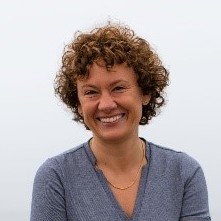 Magdalena Żadkowska, (female), PhD, Assistant Professor in Sociology Institute at University of Gdansk, Academic teacher, focused on women and men carriers in STEM, diversity management, intimate relations and gender studies. Cooperates in international research projects with Norway, USA, Canada, UK, Italy, Romania, Chile and France. She obtained PhD in Sociology, Nicolaus Coperinicus University, MA in Sociology, University of Gdansk, Poland, MA in Cultural Sciences, Jagiellonian University, Kraków, Poland. Expert in gender relations and status quo for: (1) Community of Practice (On the Way to Gender Equality – Community of Practice for Gender Equality in Central and Eastern Europe) of ActProject under grant agreement No 788 204 (introducing Mamorandum of Understanding for establishing Communities of PrACTice for advancing gender equality in RPOs and RFOs across Europefor at UG), (2) Gender Academy European Union’s Horizon 2020 research and innovation programme under grant agreement No 824585, (3) National Researcher for Gender-Sensitive Parliaments – EU 28 assessment. Principle Investigator for Till death do us part... Everyday life practices of 50-64 years old couples with at least 20 years’ of common life experience, NCN SONATA BIS. Member of projects: (1) Trust across borders: State institutions, families and child welfare services in Poland and Norway, funded by the EEA bi- lateral fund Poland, working together for a green, competitive and inclusive Europe; (2) Toward Gender Harmony – Understanding the Relationship between Masculinity Threat and Gender Equality Across Cultures. NCN HARMONIA, UMO-2017/26/M/HS6/00360; (3) Gender equality in Starbios 2 (Horizon 2020), Structural Transformation to Attain Responsible BIOSciences, (4) WLB_GE „Socio-cultural and Psychological Predictors of Work-Life Balance and Gender Equality- Cross-Cultural Comparison of Polish and Norwegian Families”.
Magdalena Żadkowska, (female), PhD, Assistant Professor in Sociology Institute at University of Gdansk, Academic teacher, focused on women and men carriers in STEM, diversity management, intimate relations and gender studies. Cooperates in international research projects with Norway, USA, Canada, UK, Italy, Romania, Chile and France. She obtained PhD in Sociology, Nicolaus Coperinicus University, MA in Sociology, University of Gdansk, Poland, MA in Cultural Sciences, Jagiellonian University, Kraków, Poland. Expert in gender relations and status quo for: (1) Community of Practice (On the Way to Gender Equality – Community of Practice for Gender Equality in Central and Eastern Europe) of ActProject under grant agreement No 788 204 (introducing Mamorandum of Understanding for establishing Communities of PrACTice for advancing gender equality in RPOs and RFOs across Europefor at UG), (2) Gender Academy European Union’s Horizon 2020 research and innovation programme under grant agreement No 824585, (3) National Researcher for Gender-Sensitive Parliaments – EU 28 assessment. Principle Investigator for Till death do us part... Everyday life practices of 50-64 years old couples with at least 20 years’ of common life experience, NCN SONATA BIS. Member of projects: (1) Trust across borders: State institutions, families and child welfare services in Poland and Norway, funded by the EEA bi- lateral fund Poland, working together for a green, competitive and inclusive Europe; (2) Toward Gender Harmony – Understanding the Relationship between Masculinity Threat and Gender Equality Across Cultures. NCN HARMONIA, UMO-2017/26/M/HS6/00360; (3) Gender equality in Starbios 2 (Horizon 2020), Structural Transformation to Attain Responsible BIOSciences, (4) WLB_GE „Socio-cultural and Psychological Predictors of Work-Life Balance and Gender Equality- Cross-Cultural Comparison of Polish and Norwegian Families”.
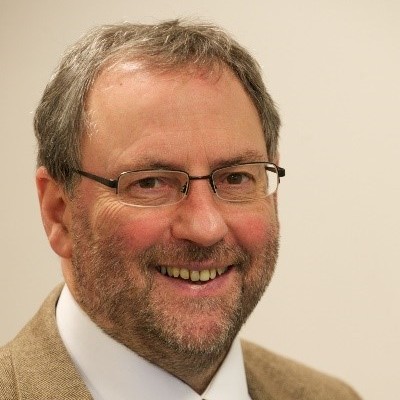 David Birch leads the Photophysics Group and works with fluorescence to address interdisciplinary molecular grand challenges at the biomedical interface that are relevant to metabolism and disease. He is one of the pioneers of modern-day fluorescence lifetime spectroscopy and a driving force that has helped make Scotland their global manufacturing hub. Many of the techniques and instrumentation first described in David's publications are widely used around the World. The combination of both excitation and emission monochromators in fluorescence lifetime measurement (J. Phy. E. 1977) has become standard practice. Over two decades the coaxial nanosecond flashlamp source (Rev. Sci. Instrum. 1981) was widely used for these measurements, eventually being superseded by semiconductor sources, which became particularly important for UV LED excitation of protein fluorescence lifetime (Meas. Sci. Technol. 2004). David led the development of Multiplexed TCSPC for simultaneous fluorescence decay measurements and used it to demonstrate time-resolved array spectroscopy (J. Phys.E. 1988). In a subsequent collaboration with UMIST he helped design and develop the first ASIC for fluorescence (Rev. Sci. Instrum. 1996) and demonstrated the benefits of multiplexed decay measurements in fluorescence lifetime imaging (FLIM).
David Birch leads the Photophysics Group and works with fluorescence to address interdisciplinary molecular grand challenges at the biomedical interface that are relevant to metabolism and disease. He is one of the pioneers of modern-day fluorescence lifetime spectroscopy and a driving force that has helped make Scotland their global manufacturing hub. Many of the techniques and instrumentation first described in David's publications are widely used around the World. The combination of both excitation and emission monochromators in fluorescence lifetime measurement (J. Phy. E. 1977) has become standard practice. Over two decades the coaxial nanosecond flashlamp source (Rev. Sci. Instrum. 1981) was widely used for these measurements, eventually being superseded by semiconductor sources, which became particularly important for UV LED excitation of protein fluorescence lifetime (Meas. Sci. Technol. 2004). David led the development of Multiplexed TCSPC for simultaneous fluorescence decay measurements and used it to demonstrate time-resolved array spectroscopy (J. Phys.E. 1988). In a subsequent collaboration with UMIST he helped design and develop the first ASIC for fluorescence (Rev. Sci. Instrum. 1996) and demonstrated the benefits of multiplexed decay measurements in fluorescence lifetime imaging (FLIM).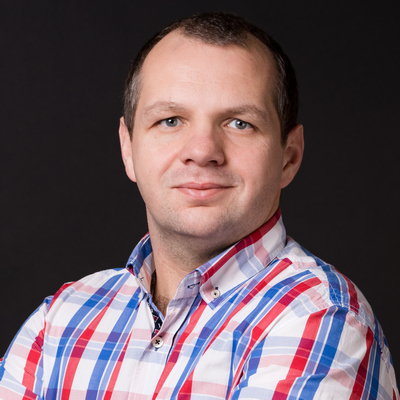 Dr. Tomasz Trombik – graduated in microbiology from the University of Wroclaw. In 2003 he moved for Ph.D. studies at the UCL (Louvain-la-Neuve, Belgium) where he worked under the supervision of prof. Boutry on plant plasma membrane (PM) transporters. As a post-doc in 2008, he joined the group of Dr. Chimini at the Immunology Center of Marseille (CIML, Marseille, France) where he conducted his research on animal ABC transporters. Further, he became interested in the dynamic analysis of the PM lateral organization using fluorescence spectroscopy approaches, mainly a spot variation Fluorescence Correlation Spectroscopy (svFCS), a novel technique developed by the group of Dr. Marguet. Between 2013 and 2015 he was appointed as a leader of the Biochemistry Laboratory in the semi-private consortium developing therapeutic antibodies. He finally came back to Poland at the beginning of 2016. Within the Biophysics Laboratory at the University of Wroclaw he established his own research on ABCA1 protein, trying to understand how does it govern the organization of the cell PM and influences different biological processes. Dr. Trombik applies multidisciplinary approaches, including classical biochemical and cell biology analysis combined with biophysical methods such as FLIM, NMR and svFCS that he implemented in Wroclaw.
Dr. Tomasz Trombik – graduated in microbiology from the University of Wroclaw. In 2003 he moved for Ph.D. studies at the UCL (Louvain-la-Neuve, Belgium) where he worked under the supervision of prof. Boutry on plant plasma membrane (PM) transporters. As a post-doc in 2008, he joined the group of Dr. Chimini at the Immunology Center of Marseille (CIML, Marseille, France) where he conducted his research on animal ABC transporters. Further, he became interested in the dynamic analysis of the PM lateral organization using fluorescence spectroscopy approaches, mainly a spot variation Fluorescence Correlation Spectroscopy (svFCS), a novel technique developed by the group of Dr. Marguet. Between 2013 and 2015 he was appointed as a leader of the Biochemistry Laboratory in the semi-private consortium developing therapeutic antibodies. He finally came back to Poland at the beginning of 2016. Within the Biophysics Laboratory at the University of Wroclaw he established his own research on ABCA1 protein, trying to understand how does it govern the organization of the cell PM and influences different biological processes. Dr. Trombik applies multidisciplinary approaches, including classical biochemical and cell biology analysis combined with biophysical methods such as FLIM, NMR and svFCS that he implemented in Wroclaw.
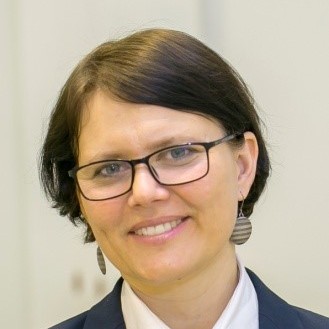 Joanna Kolmas, pharmacist, head of Department of Analytical Chemistry, vice dean and associate professor of the Faculty of Pharmacy, Medical University of Warsaw (Poland). She received her MSc Degree in 1999 and completed her PhD on solid-state NMR and IR studies of synthetic and dental apatites in 2006 (Medical University of Warsaw). In 2016 she completed her habilitation (title: “Assessment of the structure and physicochemical properties of biological and synthetic apatites in the context of searching for new apatite materials with potential biomedical importance”). Joanna Kolmas has published over 40 articles in peer-reviewed international journals and has attracted external 3 grants (founded by FNP and NCN). She is also a co-inventor of 4 Polish patents. Her work focuses on synthetic and natural calcium phosphates, modification of calcium phosphates to enhance their biological properties and multifunctional hybrid biomaterials as potential drug delivery systems.
Joanna Kolmas, pharmacist, head of Department of Analytical Chemistry, vice dean and associate professor of the Faculty of Pharmacy, Medical University of Warsaw (Poland). She received her MSc Degree in 1999 and completed her PhD on solid-state NMR and IR studies of synthetic and dental apatites in 2006 (Medical University of Warsaw). In 2016 she completed her habilitation (title: “Assessment of the structure and physicochemical properties of biological and synthetic apatites in the context of searching for new apatite materials with potential biomedical importance”). Joanna Kolmas has published over 40 articles in peer-reviewed international journals and has attracted external 3 grants (founded by FNP and NCN). She is also a co-inventor of 4 Polish patents. Her work focuses on synthetic and natural calcium phosphates, modification of calcium phosphates to enhance their biological properties and multifunctional hybrid biomaterials as potential drug delivery systems.
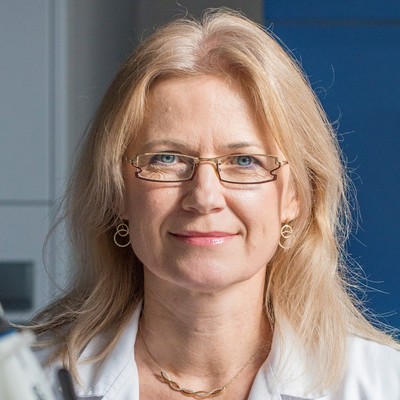 Ewa Stępień is a doctor in biology and associated professor in medicinal biology and biophysics. She is a scientist and a practicing medical diagnostician, specialized in cardiovascular diseases and cancer. After leading the Molecular Biology Laboratory at the John Paul II Hospital in Cracow, she became Head of the Department of Medical Physics at the Jagiellonian University in Cracow, Poland.
Ewa Stępień is a doctor in biology and associated professor in medicinal biology and biophysics. She is a scientist and a practicing medical diagnostician, specialized in cardiovascular diseases and cancer. After leading the Molecular Biology Laboratory at the John Paul II Hospital in Cracow, she became Head of the Department of Medical Physics at the Jagiellonian University in Cracow, Poland.
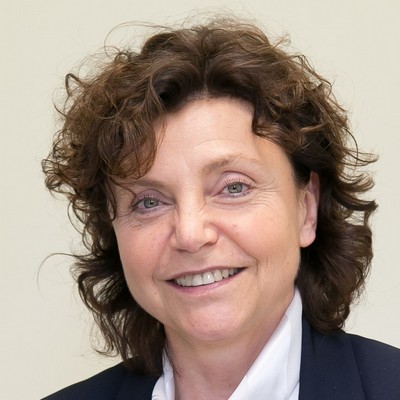 Malgorzata Lewandowska-Szumiel, PhD, FBSE, is the Professor at the Medical University of Warsaw - the Founding Director of the Laboratory for Cell Research and Application and a Head of the Tissue Engineering Team at the Department of Histology and Embryology.
Malgorzata Lewandowska-Szumiel, PhD, FBSE, is the Professor at the Medical University of Warsaw - the Founding Director of the Laboratory for Cell Research and Application and a Head of the Tissue Engineering Team at the Department of Histology and Embryology.
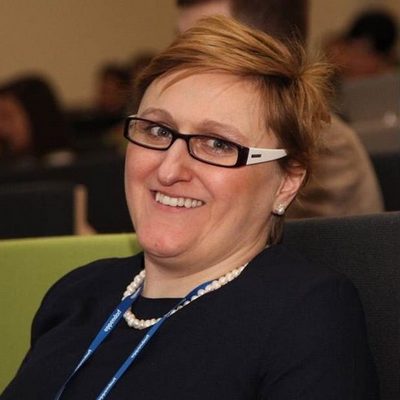 Absolwentka Politechniki Wrocławskiej kierunku biotechnologia o specjalności biologia molekularna. Od 2006 roku adiunkt w Zakładzie Onkologii Molekularnej i Translacyjnej w Centrum Onkologii Instytucie im. Marii Skłodowskiej –Curie w Warszawie. Od 2018 dr hab. n. med. prof. nadzw. Odbyła liczne staże naukowe m.in. w Instytucie Maxa Plancka w Kolonii w latach 2008-2010 stypendystka Instytutu Maxa Plancka. Zainteresowania naukowe: wykorzystanie różnych organizmów modelowych do zrozumienia mechanizmów powstawania nowotworów, epigenetyczna regulacja ekspresji genów, struktury chromatyny oraz zaburzenia metaboliczne w nowotworach. Ponadto opracowywanie nowych technologii w leczeniu nowotworów w oparciu o nanotechnologię i inżynierię genetyczną oraz badanie zjawiska wyczerpania limfocytów w przebiegu choroby nowotworowej.
Absolwentka Politechniki Wrocławskiej kierunku biotechnologia o specjalności biologia molekularna. Od 2006 roku adiunkt w Zakładzie Onkologii Molekularnej i Translacyjnej w Centrum Onkologii Instytucie im. Marii Skłodowskiej –Curie w Warszawie. Od 2018 dr hab. n. med. prof. nadzw. Odbyła liczne staże naukowe m.in. w Instytucie Maxa Plancka w Kolonii w latach 2008-2010 stypendystka Instytutu Maxa Plancka. Zainteresowania naukowe: wykorzystanie różnych organizmów modelowych do zrozumienia mechanizmów powstawania nowotworów, epigenetyczna regulacja ekspresji genów, struktury chromatyny oraz zaburzenia metaboliczne w nowotworach. Ponadto opracowywanie nowych technologii w leczeniu nowotworów w oparciu o nanotechnologię i inżynierię genetyczną oraz badanie zjawiska wyczerpania limfocytów w przebiegu choroby nowotworowej.
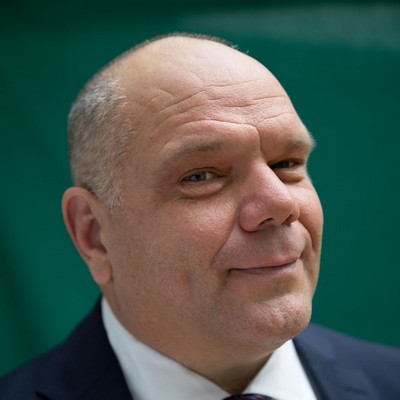 Andreas Vilcinskas (Justus Liebig University, Fraunhofer Institute for Molecular Biology and Applied Ecology (IME)) is a Professor of Applied Entomology and Director of the Institute for Insect Biotechnology Justus Liebig University Giessen, Germany. He is a distinguished global pioneer in the field of insect biotechnology and has published the first three books addressing this new research field. His research interests focus on development of innovative approaches for the control of pest and vector insects, insect immunity, ecology and evolution, invasion biology, genome biology, and epigenetics of insects.
Andreas Vilcinskas (Justus Liebig University, Fraunhofer Institute for Molecular Biology and Applied Ecology (IME)) is a Professor of Applied Entomology and Director of the Institute for Insect Biotechnology Justus Liebig University Giessen, Germany. He is a distinguished global pioneer in the field of insect biotechnology and has published the first three books addressing this new research field. His research interests focus on development of innovative approaches for the control of pest and vector insects, insect immunity, ecology and evolution, invasion biology, genome biology, and epigenetics of insects.
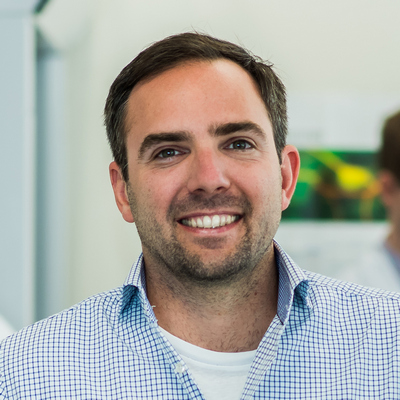 Sebastian Glatt, born in Austria, studied genetics and microbiology at the University of Vienna. After his PhD thesis in molecular oncology at the pharmaceutical industry, he moved to EMBL Heidelberg and transformed from a cell biologist into a protein/RNA biochemist and structural biologist. Since September 2015 he leads an independent Max Planck Research Group at the Malopolska Centre of Biotechnology (MCB), the postgraduate research centre for life science of the Jagiellonian University in Krakow, Poland. He is also deputy director for scientific affairs at the MCB and head of the “National Cryo-EM facility“ at the neighbouring Solaris synchrotron."
Sebastian Glatt, born in Austria, studied genetics and microbiology at the University of Vienna. After his PhD thesis in molecular oncology at the pharmaceutical industry, he moved to EMBL Heidelberg and transformed from a cell biologist into a protein/RNA biochemist and structural biologist. Since September 2015 he leads an independent Max Planck Research Group at the Malopolska Centre of Biotechnology (MCB), the postgraduate research centre for life science of the Jagiellonian University in Krakow, Poland. He is also deputy director for scientific affairs at the MCB and head of the “National Cryo-EM facility“ at the neighbouring Solaris synchrotron."